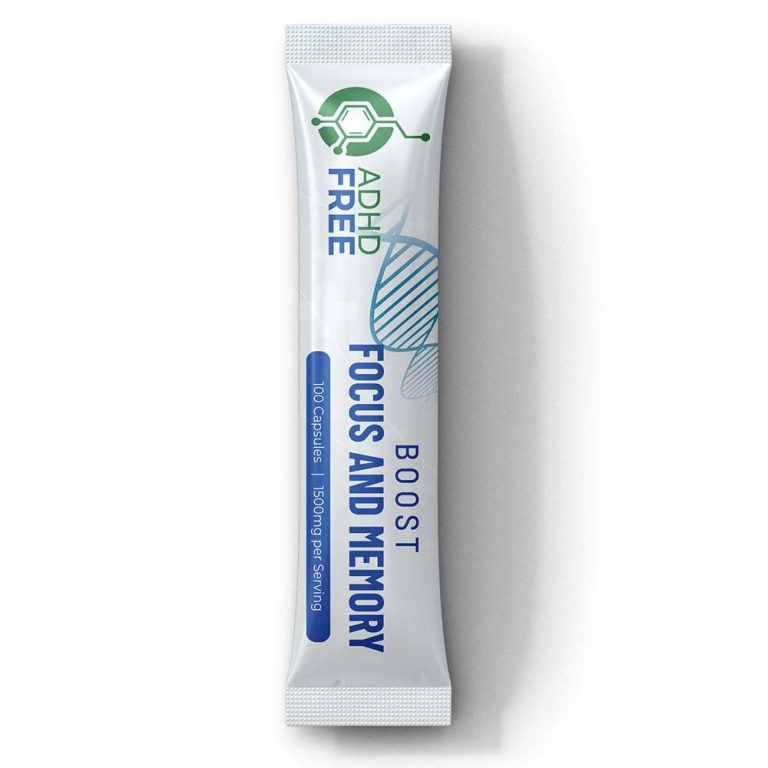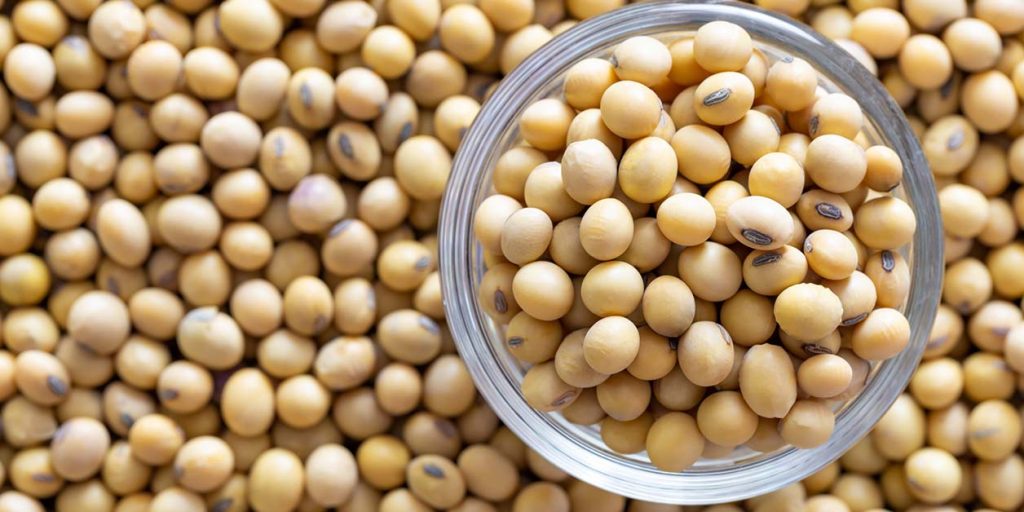Are you struggling with memory issues related to ADHD? If so, you may be interested in the potential benefits of Vitamin E for improving cognitive function. This article explores the research behind the effects of Vitamin E on ADHD memory and its importance for individuals looking to improve their overall brain health.
What is ADHD?
ADHD, or Attention Deficit Hyperactivity Disorder, is a neurodevelopmental disorder characterized by persistent patterns of inattention, hyperactivity, and impulsivity that can have a significant impact on daily functioning.[1] It is a common mental health condition that affects individuals of all ages, including children, adolescents, and adults. Individuals with ADHD may struggle with focusing, staying organized, and controlling impulsive behavior. It is important to understand that ADHD is a complex condition with varying symptoms and levels of severity, and it is typically diagnosed by healthcare professionals using specific criteria outlined in the Diagnostic and Statistical Manual of Mental Disorders (DSM-5).
What is Vitamin E?
Vitamin E is a fat-soluble antioxidant that is essential for maintaining the health of cells and protecting them from damage caused by free radicals. It can be found naturally in a variety of foods, such as nuts, seeds, and vegetable oils. This important vitamin supports immune function, promotes healthy skin, and aids in the formation of red blood cells. There is also evidence that it may have potential benefits for brain health, including improving memory and cognitive function. However, further research is needed to fully understand the effects of vitamin E on ADHD memory.
Fact: Vitamin E is actually a group of eight different compounds, including four tocopherols and four tocotrienols, making it a diverse and multifaceted nutrient.
How Does Vitamin E Affect ADHD?
Vitamin E has been found to have a positive impact on individuals with ADHD, particularly in regards to memory and cognitive function. In this section, we will delve into the various ways in which vitamin E affects ADHD. We will discuss its ability to improve memory and cognitive function, its role in reducing inflammation in the brain, and its impact on regulating dopamine levels. By understanding these effects, we can gain a better understanding of how vitamin E can benefit those with ADHD.
1. Improves Memory and Cognitive Function
Vitamin E has been discovered to enhance memory and cognitive function in individuals with ADHD. To experience these benefits, follow these steps to incorporate Vitamin E into your daily routine:
- Incorporate foods high in Vitamin E into your diet, such as almonds, spinach, and avocados.
- Consult with a doctor before considering taking Vitamin E supplements to determine the appropriate dosage.
- Be mindful of potential side effects of Vitamin E, which may include nausea, diarrhea, headaches, and increased risk of bleeding.
- Follow the recommended daily allowance of Vitamin E, which is 15 mg for adults.
- Explore other natural remedies for ADHD, such as Omega-3 fatty acids, magnesium, and iron, which have also been shown to have positive effects on memory and cognitive function.
2. Reduces Inflammation in the Brain
Vitamin E has been found to positively impact ADHD by reducing inflammation in the brain. Inflammation in the brain has been linked to symptoms of ADHD, and vitamin E can help lower this inflammation. By doing so, it has the potential to improve attention, focus, and overall cognitive function in individuals with ADHD. While vitamin E can be obtained through foods such as nuts, seeds, and leafy greens, it can also be taken as a supplement. However, it is important to consult with a doctor to determine the appropriate dosage for an individual with ADHD.
Other natural remedies for ADHD include:
- Omega-3 fatty acids
- Magnesium
- Iron
Incorporating these nutrients into a balanced diet may provide additional benefits for individuals with ADHD.
3. Regulates Dopamine Levels
Regulating dopamine levels is an important aspect to consider when examining the effects of Vitamin E on ADHD. Here are the steps involved:
- Vitamin E helps to regulate dopamine levels in the brain, which is a neurotransmitter responsible for controlling mood, attention, and motivation.
- By maintaining a balanced dopamine level, Vitamin E has the potential to alleviate symptoms of ADHD, such as inattention and impulsivity.
- Studies suggest that Vitamin E’s antioxidant properties may protect dopamine-producing neurons from oxidative stress and damage.
- A balanced dopamine level is crucial for optimal brain function, including focus, concentration, and impulse control.
- It’s important to note that while Vitamin E may support dopamine regulation, it should not be relied upon as a standalone treatment for ADHD.
Emily, a teenager with ADHD, began taking Vitamin E supplements as part of her overall treatment plan. Over time, she noticed improvements in her ability to focus and manage her impulsivity. While Vitamin E alone did not completely eliminate her symptoms, it played a role in regulating her dopamine levels and enhancing her overall well-being. Emily continues to incorporate Vitamin E alongside other natural remedies and therapies recommended by her healthcare provider.
What are the Sources of Vitamin E?
Vitamin E is a crucial nutrient that plays a significant role in maintaining a healthy brain and memory function, especially for individuals with ADHD. In this section, we will delve into the various sources of vitamin E that can be incorporated into one’s diet. From foods rich in this essential vitamin to supplements, we will explore the different ways to increase vitamin E intake to potentially improve memory and cognitive function in those with ADHD.
1. Foods High in Vitamin E
Foods high in vitamin E can be a beneficial addition to the diet for individuals with ADHD. Incorporating these foods can provide the necessary nutrients to support brain health and function. Here are some examples:
- Almonds: A handful of almonds provides a significant amount of vitamin E.
- Spinach: This leafy green vegetable is not only high in vitamin E but also contains other essential nutrients.
- Sunflower seeds: These seeds are a tasty and convenient way to increase your vitamin E intake.
- Avocado: A versatile fruit that is a good source of vitamin E and healthy fats.
- Broccoli: This cruciferous vegetable offers a variety of vitamins and minerals, including vitamin E.
By incorporating these vitamin E-rich foods into your meals, you can support overall brain health and function.
2. Vitamin E Supplements
Vitamin E supplements are a popular option for individuals with ADHD who want to incorporate this nutrient into their daily regimen. Here are some steps to consider when choosing and using vitamin E supplements:
- Consult with a healthcare professional: Before starting any new supplement, it’s important to consult with a doctor or healthcare provider to determine the appropriate dosage and ensure it doesn’t interfere with any medications or existing health conditions.
- Choose a reputable brand: Look for a trusted brand that uses high-quality ingredients and follows good manufacturing practices. Read reviews and check for third-party testing to ensure the supplement’s quality and potency.
- Consider the form of vitamin E: Vitamin E supplements are available in various forms, including capsules, softgels, and liquid. Choose the form that is most convenient for you to take and easily fits into your daily routine.
- Follow the recommended dosage: Stick to the recommended dosage provided by your healthcare professional or as indicated on the supplement packaging. Avoid exceeding the recommended dosage, as excessive intake of vitamin E supplements can have adverse effects.
- Monitor for any side effects: Pay attention to any potential side effects like nausea, diarrhea, or headaches. If you experience any adverse reactions, discontinue use and consult with your healthcare professional.
What are the Side Effects of Vitamin E?
While Vitamin E is often touted for its potential benefits in improving ADHD memory, it is important to also consider its potential side effects. In this section, we will examine the possible negative effects of Vitamin E supplementation, including nausea and diarrhea, headaches, and an increased risk of bleeding. By understanding these potential consequences, we can make informed decisions about incorporating Vitamin E into our treatment plan for ADHD memory.
1. Nausea and Diarrhea
Nausea and diarrhea are potential side effects of taking vitamin E supplements. If you experience these symptoms, there are steps you can take to alleviate them:
- Adjust dosage: Reduce the amount of vitamin E you are taking. Start with a lower dose and gradually increase it, allowing your body to adjust.
- Take with food: Consuming vitamin E with a meal can help reduce the likelihood of experiencing gastrointestinal issues like nausea and diarrhea.
- Hydrate: Drink plenty of water to stay hydrated, which can help alleviate symptoms of nausea and diarrhea.
- Consult a doctor: If symptoms persist or worsen, consult your healthcare provider for guidance on managing these side effects.
2. Headaches
Headaches can be a potential side effect of taking vitamin E supplements. If you experience headaches while using vitamin E for ADHD, here are some steps to help manage them:
- Consult with your doctor: They can assist in determining if the headaches are linked to the vitamin E supplement or if there may be other underlying causes.
- Adjust dosage: Your doctor may suggest adjusting the dosage of vitamin E to see if that helps alleviate the headaches.
- Take with food: Taking the supplement with a meal can decrease the likelihood of experiencing headaches.
- Hydrate: Make sure you are properly hydrated, as dehydration can contribute to headaches.
- Monitor symptoms: Keep track of the frequency and severity of the headaches, and inform your doctor of any changes.
3. Increased Risk of Bleeding
- Vitamin E can increase the risk of bleeding if taken in excessive amounts or combined with blood-thinning medications.
- To minimize the risk, it is important to follow the recommended daily allowance of vitamin E.
- Consulting with a doctor before starting vitamin E supplementation is crucial, especially for individuals with pre-existing bleeding disorders or those taking medications that affect blood clotting.
While vitamin E offers various health benefits, including its potential impact on ADHD, it is essential to be aware of the potential risk of increased bleeding.
Always prioritize your health and safety by seeking professional medical advice before making any changes to your supplementation routine.
How Much Vitamin E Should Someone with ADHD Take?
The use of vitamin E as a potential treatment for ADHD has been a topic of much discussion. However, before incorporating it into your daily regimen, it is important to understand the appropriate amount to take. In this section, we will discuss the recommended daily allowance of vitamin E for individuals with ADHD. We will also touch upon the importance of consulting with a doctor before beginning any new supplement regimen. By the end, you will have a better understanding of the appropriate dosage of vitamin E for managing ADHD symptoms.
1. Recommended Daily Allowance
The recommended daily allowance (RDA) for Vitamin E varies depending on age and gender. To determine the appropriate RDA, follow these steps:
- Check the Dietary Reference Intakes (DRIs) for Vitamin E based on your age and gender.
- For males and females aged 14 and older, the RDA is 15 milligrams (22.4 IU).
- The RDA for infants and children ranges from 4 milligrams (6 IU) to 11 milligrams (16.4 IU), depending on their age.
- Pregnant and lactating women have slightly higher RDAs.
- It is recommended to consult with a healthcare professional to determine the best RDA for your specific needs and health conditions.
Established in 1947 by the Food and Nutrition Board of the National Academy of Sciences, the first recommended daily allowance (RDA) serves as a guide for individuals to meet their nutrient requirements and maintain good health. As new scientific research and dietary patterns emerge, the RDA has been updated to ensure optimal nutrition and informed decision-making about essential nutrient intake.
2. Consultation with a Doctor
Consulting with a doctor is crucial when considering treatment options for ADHD.
- Schedule an appointment with a healthcare professional who specializes in ADHD.
- Prepare a list of questions and concerns to discuss during the consultation with the doctor.
- Provide a detailed medical history, including any previous diagnoses or treatments.
- Discuss symptoms, their severity, and how they impact daily life.
- Share any relevant information about current medication or supplement usage.
- Openly communicate about treatment goals and expectations with the doctor.
- Ask about potential risks, side effects, and any possible interactions with other medications.
- Consider seeking a second opinion from another doctor if necessary.
Remember, a doctor can provide personalized guidance and develop a comprehensive treatment plan for ADHD.
Are There Any Other Natural Remedies for ADHD?
While vitamin E has been shown to have potential benefits for improving memory in individuals with ADHD, there are also other natural remedies that can aid in managing symptoms of this condition. In this section, we will discuss three additional options to consider: omega-3 fatty acids, magnesium, and iron. Each of these substances has been linked to potential benefits for ADHD and can be incorporated into a holistic treatment plan alongside vitamin E. Let’s explore how these natural remedies may help improve symptoms and overall well-being for those with ADHD.
1. Omega-3 Fatty Acids
Omega-3 fatty acids are essential nutrients that are vital for brain health and function, making them a potential natural remedy for ADHD. These healthy fats have been proven to enhance cognitive functions, such as memory and attention, which are often impaired in individuals with ADHD.
Great sources of omega-3 fatty acids include:
- Fatty fish like salmon, sardines, and mackerel
- Plant-based options like flaxseed and chia seeds
Adding these foods to your diet or taking omega-3 supplements may help alleviate some ADHD symptoms, but it is always advisable to consult with a healthcare professional for personalized advice.
2. Magnesium
Magnesium is an essential mineral that plays a crucial role in brain function and development, making it a potential natural remedy for ADHD.
- Regulating neurotransmitters: Magnesium helps regulate the release and function of neurotransmitters in the brain, including dopamine, which is associated with attention and focus.
- Reducing hyperactivity: Studies suggest that magnesium supplementation may help reduce hyperactivity and impulsivity in individuals with ADHD.
- Improving sleep: Magnesium promotes relaxation and may improve sleep quality, which can be beneficial for individuals with ADHD who often struggle with sleep issues.
Incorporating magnesium-rich foods like leafy greens, nuts, and seeds into the diet or considering magnesium supplements under the guidance of a professional may be worth exploring as part of a holistic approach to managing ADHD symptoms.
3. Iron
Iron plays a vital role in managing ADHD symptoms and improving memory. Here are steps to incorporate iron into your ADHD management plan:
- Consult with a healthcare professional to determine if iron supplementation is necessary.
- Increase iron intake through diet by consuming iron-rich foods like lean meats, seafood, beans, and leafy green vegetables.
- Consider pairing iron-rich foods with sources of vitamin C, as it enhances iron absorption.
- Avoid consuming iron with calcium-rich foods or beverages, such as dairy products, as they can inhibit iron absorption.
- Regularly monitor iron levels through blood tests to ensure optimal levels.
Frequently Asked Questions
What are the effects of Vitamin E to ADHD memory?
Vitamin E has been found to have a positive impact on ADHD memory. It can help improve focus, concentration, and overall cognitive function in individuals with ADHD.
How does Vitamin E work on ADHD memory?
Vitamin E is an antioxidant that helps protect brain cells from damage. It also promotes the growth of new nerve cells and helps strengthen existing connections in the brain, leading to improved memory and cognitive function in individuals with ADHD.
Can Vitamin E help with other symptoms of ADHD?
While vitamin E is mainly known for its effects on memory, it has also been found to improve other symptoms of ADHD such as hyperactivity and impulsivity. However, it is important to note that vitamin E should not be used as a standalone treatment for ADHD, and should be used in combination with other treatments recommended by a healthcare professional.
How much Vitamin E should be consumed to see improvements in ADHD memory?
The recommended daily intake of vitamin E is around 15mg for adults, and 9-15mg for children, depending on their age. However, it is best to consult with a healthcare professional to determine the appropriate dosage for individuals with ADHD.
Are there any risks or side effects associated with taking Vitamin E for ADHD memory?
When taken in recommended doses, vitamin E is generally safe and well-tolerated. However, high doses of vitamin E may cause gastrointestinal issues, headaches, or fatigue. It is always best to consult with a healthcare professional before starting any new supplement regimen.
Can Vitamin E be found in foods?
Yes, vitamin E can be found in various foods such as nuts, seeds, vegetable oils, and leafy green vegetables. Adding these foods to your diet can help increase your intake of vitamin E and potentially improve ADHD memory.







